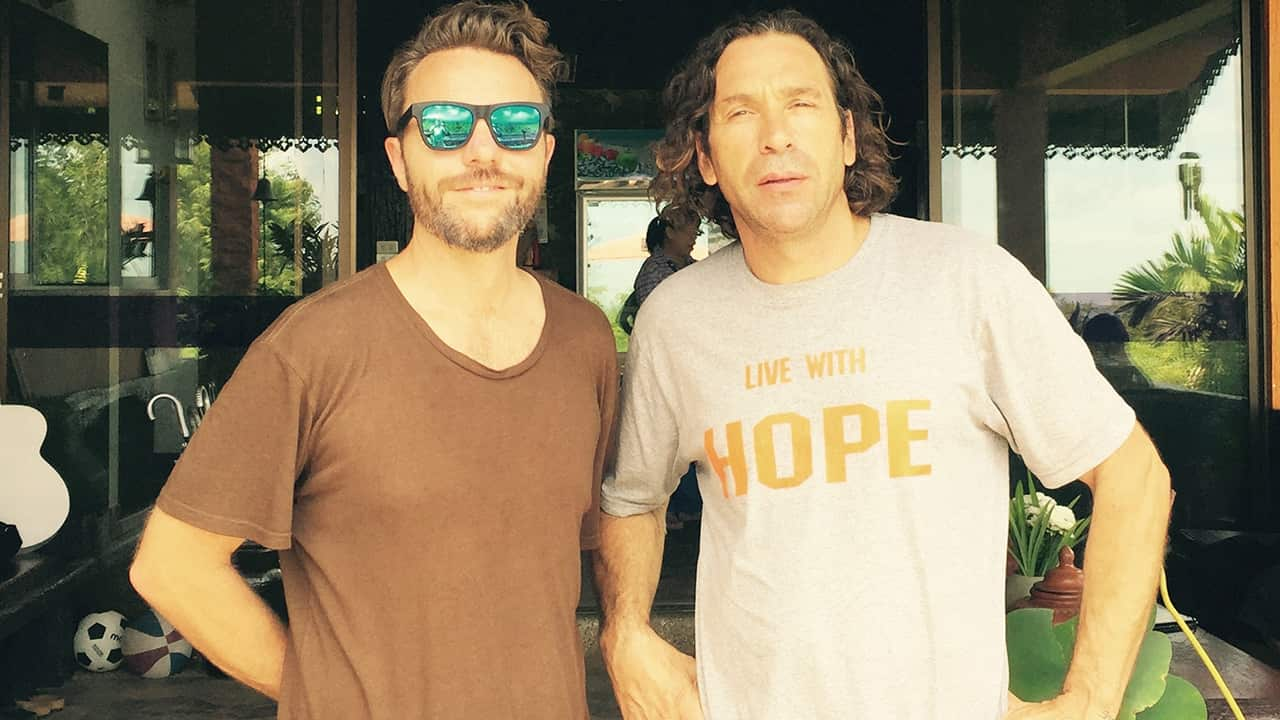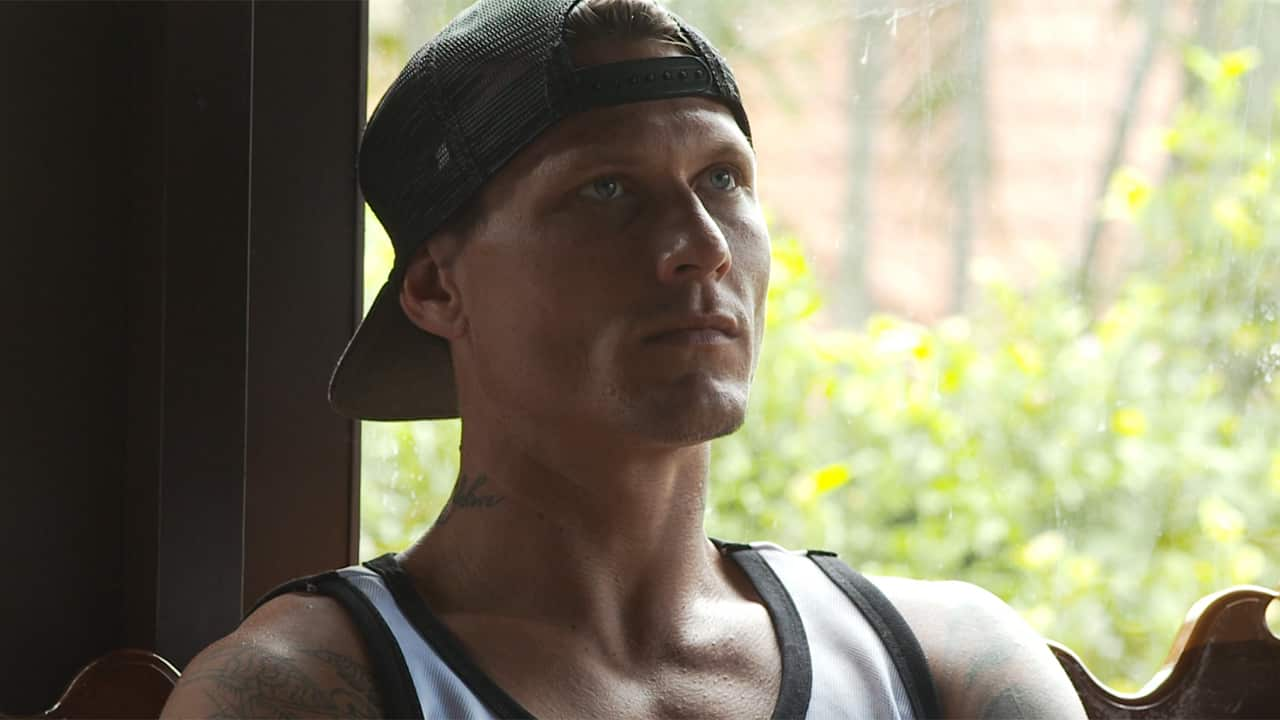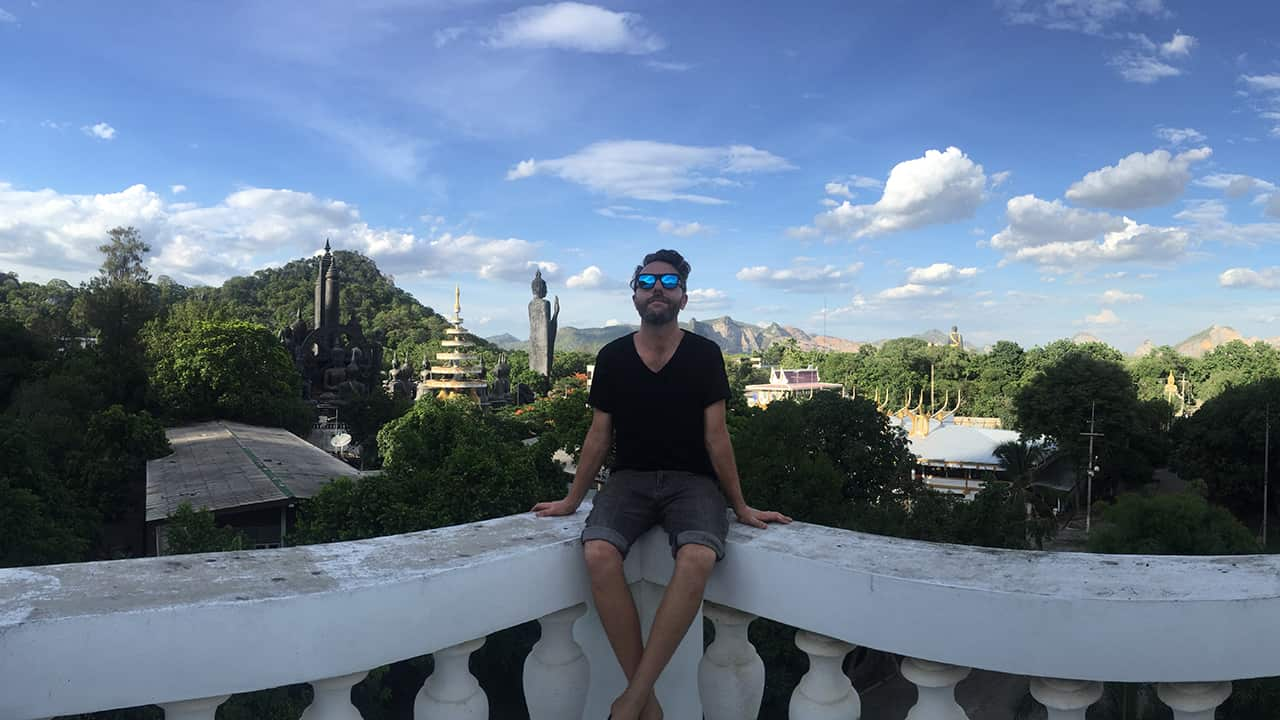Thailand is food. Culture. The Thai smile. Humidity. Beaches. Buddha. Backpacking. Then, medical tourism. Get your teeth done. Boob job. Sex change if you want.
This wonderful land is constantly reinventing itself, and giving foreigners more good reasons to come here. The latest phenomenon is 'rehab tourism'.
With many Western nations struggling to know what to do with their drug addicts, a warm country with a favourable exchange rate seems like an excellent place to get clean - and private rehab clinics are doing a roaring trade.
Hope Rehab Centre is one of them, and I’m on my way there to meet Courtney - a 30-year-old ice addict from New South Wales – to follow him for Dateline’s story.
Courtney wants to get clean, but his family have been told that it’ll take seven months to get him into rehab in Australia. A person could die in that time, his mum tells me, so they raided their retirement fund and sent him here quick smart.
I hit the Thai coast in my heavily air conditioned car and travel through Pattaya – a town that’s the centre of vice and a place to hit rock bottom. It’s kind of fitting that the road to rehab passes this way. Arriving at the clinic, owner and director Simon Mott greets me with the enthusiasm of someone who’s really turned their life around. “I was on heroin and crack for 20 years,” he tells me. He’s been clean for 15, and has set up a paradise with a purpose. His core clientele are Aussies on ice.
Arriving at the clinic, owner and director Simon Mott greets me with the enthusiasm of someone who’s really turned their life around. “I was on heroin and crack for 20 years,” he tells me. He’s been clean for 15, and has set up a paradise with a purpose. His core clientele are Aussies on ice.

Dean (left) with the founder of the Hope Rehab Centre, Simon Mott. Source: SBS Dateline
The main building at Hope is a large homestead in the style of a chateau. The Thai landlord is a Francophile, and was having trouble renting the place out.
It's an appropriate setting for this United Nations of addicts - in addition to the Australians, there are Brits getting off booze and Americans getting off coke.
Meditation, massage, Muay Thai and mindfulness. Rinse and repeat. The clinic borrows from its environment, mixing Eastern practices with a healthy helping of Western-style abstinence, counselling and cognitive behavioural therapy. It’s a good place to be.
The clients are mostly clear-eyed, smiling, healthy-looking, friendly. Grateful to be here. Most tell me they’re so happy to be relieved of the burden of their addiction - and to have a safe place away from it. Courtney agrees. After seven years of injecting ice, he’s tired. His wife has a baby on the way, life is about to change, and he doesn’t want to see his kid through a haze of meth and deception.
Courtney agrees. After seven years of injecting ice, he’s tired. His wife has a baby on the way, life is about to change, and he doesn’t want to see his kid through a haze of meth and deception.

Courtney from NSW at the Hope Rehab Centre in Thailand. Source: SBS Dateline
It sounds like paradise, but it’s still hard work. The minimum stay here is a month, during which time you stare into the abyss. Every bad thing you’ve done, every lie, theft, outburst you’ve had and disappointment you’ve caused is shared as a group.
Action, behaviour, consequence - tears in the tropics. Most stay longer than a month - some never go home, staying in sober houses, and eventually getting jobs teaching English in Thailand. Courtney bolts out the door on day 31.
Another reason I’ve come to Thailand is to look at how a particular group of Buddhist monks do rehab. Travelling North for around four hours, I head towards Wat Thamkrabok, a place I’ve been fascinated with since my mate Steve kicked an opium habit there eight years ago.
Opium addicts can die from the symptoms of their withdrawal, but Steve skipped out of the place clean and sober after 10 days and never looked back.
It was strange to arrive, following in his footsteps. He introduced me to the monks that would grant me permission to make my film here.
Wat Thamkrabok is nestled in the jungle, beneath the most beautiful limestone cliffs. In the centre of the temple complex there are massive black Buddhas forged from molten lava, and larger-than-life statues of the founding monks peer down at me from among the trees.
As my car pulls up, I realise that I never anticipated actually being here. So often when planning a shoot, practicality overcomes reality - flights, baggage and budgets sit at the front of your consciousness.
Arriving at Thamkrabok, I take a deep breath and soak in the tranquility and beauty of this place. The name of Dateline’s story, Last Resort Rehab really comes from Thamkrabok. People come here in desperation, to be treated for free.
The name of Dateline’s story, Last Resort Rehab really comes from Thamkrabok. People come here in desperation, to be treated for free.

Dean on location at Wat Thamkrabok in Thailand. Source: SBS Dateline
A lot of the success in getting people clean is attributed to monk-made herbal medicine that induces copious amounts of vomiting - which is by all accounts as effective as it is unpleasant.
The clients here are mostly locals, around 40 Thais who are here mostly to get off yaba or ice. There are also ten foreigners here, but no one wants to speak to me on camera about their addiction or their journey here at the temple.
No matter how much I explain to them that I respect them taking a stand against their addiction, there’s a sense of shame among the foreigners that it’s 'come to this’. Suddenly, an affable middle-aged Aussie guy bounces up to me and says “G’day, I’m Steve - I love Dateline - what can I help ya with mate?”
Steve’s story is similar to Courtney’s. Aussie blokes starting out as social users of ice, and hitting rock bottom after their addiction became too much to handle.
Steve has already done the vomiting side of the therapy, and tells me I’m in for a show. He isn’t wrong.
There is something surreal about the ritual itself - as around 20 people lean over a concrete trough, spewing their guts out, while other addicts chant and sing a popular Thai pop song about getting off drugs.
Addicts are kept in a locked compound at Thamkrabok. There is a constant stream of people arriving for help, and no one is turned away. New arrivals take a sacred vow that they won’t touch narcotics again, and those leaving write their affirmations of sobriety on small pieces of paper before eating them.
It’s a calm place. Morale is high. The Thais absorb the foreigners into their ways - chanting, communal eating, horsing around.
Make no mistake, there’s an element of boot-camp to the place - 4am alarms, sweeping, doing dishes for 200 monks - but there’s a rhythm and magic to it as well.
Thailand initially struck me as a strange place to get sober. My own backpacking days and early career as a filmmaker in this country were anything but.
But there’s something about the gentle welcome of the place, the spirituality on every street corner and the gentle tropical air that makes it make sense.
I guess the real challenge for foreign addicts coming here for tropical rehab, is going home.
Help and Support
The Australian Government National Drugs Campaign has more details of where to find help and support, or phone one of the following helplines:
- Counselling Online: 1800 888 236
- Kids Helpline: 1800 55 1800
- Family Drug Support: 1300 368 186
- Lifeline: 13 11 14
More
Share
Dateline is an award-winning Australian, international documentary series airing for over 40 years. Each week Dateline scours the globe to bring you a world of daring stories. Read more about Dateline
Have a story or comment? Contact Us





